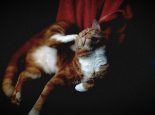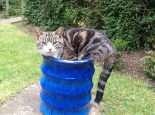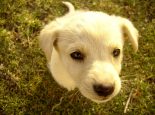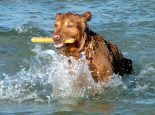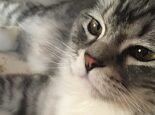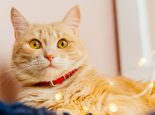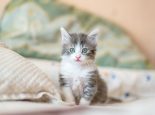Building up the menagerie, part two…
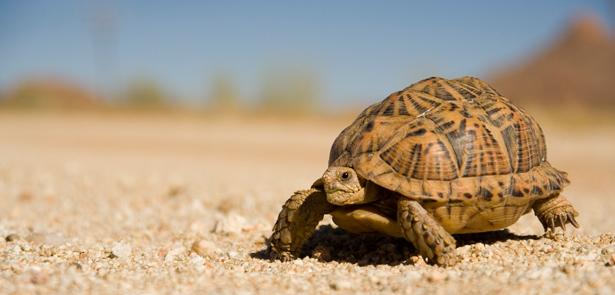
Vet Laura Frost continues to look at more unusual pets, how best to care for them and common problems. This issue: the humble tortoise – and some birds!
Tortoises – safe hibernation
While it is not necessary to hibernate a tortoise, some people prefer to do this and often ask for advice from their vet. Some exotic specialists agree with hibernating a pet tortoise and others do not. If you choose to do this, here are some tips and advice to help keep your pet healthy both during and after hibernation. Some tortoises will tell you when it is time to hibernate, slowing down and eating less. If left unmanaged they will tend to hibernate for up to five months. This time frame, however, can put them at risk of losing too much condition. A maximum hibernation of three months is advised.
There are several options of where to keep your tortoise during their long sleep. The temperature should be between 2-9 degrees Celsius. Do not hibernate your tortoise outdoors as the temperature is too variable and sudden frosts may harm your pet. Some people keep their tortoise in a nest box in the fridge. This provides good temperature regulation, however you need to ensure the air is allowed to change every day to supply fresh oxygen and reduce the levels of carbon dioxide. Garages are another good place to keep them at a steady temperature. Commercial hibernation boxes are available but they can be home made out of two cardboard boxes. There is plenty of information online as to design and materials. It can be easily made into a fun family activity.
As vets, the time when we are most likely to see an unwell tortoise is after hibernation. It is really important to encourage them to eat as soon as possible once they are awake. If they don’t start to eat within a week please go to see your vet. They are at risk of a condition called hepatitis lipidosis, which is a type of jaundice brought on by weight loss. It is equally important that they start to go to the toilet soon after hibernation. This can be encouraged by regularly allowing them to bathe in shallow warm water. If your tortoise is a tropical tortoise they shouldn’t hibernate as they would not do this in the wild.
Feathered friends
Whether your fancy is a couple of cute zebra finches, a flock of budgerigars or an impressive African grey there is lots of think about to help them remain happy and healthy. Should they live outside in an outdoor aviary or should I keep them inside?
Advantages of an aviary:
- Plenty of space to fly and express their normal behaviour.
- Sunshine and plenty of nice fresh air.
- Bird are more active and generally fitter/less stressed.
Disadvantages of an aviary:
- The bird/s need to be acclimatized to outdoor life so it is not a shock.
- Possible attack or spread of disease from wild animals.
- Vulnerable to extreme weather conditions.
- Vulnerability to theft.
Indoor birds
If parrots are kept indoors they need to be exposed to UV light (at least 60 minutes a day). The UV-A is important for normal vision. It allows them to visualise UV-reflective plumage, which is vital to normal breeding behaviour. Just like people, the UV-B is important for vitamin D supplementation which allows good absorption and use of calcium from the food. This is particularly important for Grey parrots who regularly suffer from calcium problems.
Feather plucking
Unfortunately it is quite common for birds to pluck or chew their feathers. The first thing to work out is whether they are plucking their own feathers or whether it is one of the other birds. Although mites can cause feather plucking, it is one of the rarer differentials. It can sometimes be a sign of pain, particularly joint pain. Get your vet to check that your bird is not uncomfortable.
Feather plucking can also be a sign of stress. This can be related to other birds, loud noises or sometimes boredom. To alleviate boredom sociable birds such as parrots should have time out of their cage each day. A selection of toys should be available for them to play with. For some animals a radio playing when the house is empty may help.
Laura Frost MRCVS MA VetMB is a vet at local veterinary practice Pengelly and Mizen
Pengelly and Mizen Veterinary Surgeons 89-93 Park Road, Peterborough PE1 2TR T: 01733 554953. Emergencies only: 01733 896000
www.pengellyandmizen.co.uk








